If you ask Chris Ball, cannabis is a craft as much as it is a business. He’s the founder of Ball Family Farms, the first vertically integrated social equity company in Los Angeles, and his passion for cannabis is evident when he talks about his brand. “I can tell you if it was grown indoor or outdoor, if it was grown with salt, just by looking at it.” But before he became a connoisseur with a licensed cannabis business, he earned his stripes through decades in the illicit market or, as he prefers to call it, the “traditional market.”
Ball grew up in Roland Heights, just outside of Los Angeles, where smoking weed was just part of the culture. “Growing up in the hood, cannabis was always around.” He remembers “funny smelling cigarettes” at family barbecues, and his father always lit one after dinner while his mother sipped wine. “I grew up in the Reagan era, hearing ‘Just say no to drugs.’ But my family all smoked it, and these were the people I looked up to. I never saw anything ethically wrong with it.”
As a teenager, he bought his first ounce from a cousin who ran a thriving neighborhood business. In the beginning, Ball admits he didn’t show much promise. “I wasn’t a very good salesman. I made a little money, but I gave a lot away. I didn’t even make enough to buy another ounce.” Ball gave up for a few years, but then he needed money to put himself through junior college. He bought another ounce, and this time he committed to learning how things were done.
When it came to cannabis, his neighborhood was a flooded market. The key to success was to find the best available product and sell it for the best price around. “My business acumen set in,” he says. He was able to support himself through junior college until he won a full football scholarship to University of California at Berkeley. After graduating, he played professional football in Europe and British Columbia, where he made the connections he would later use to establish himself as one of L.A.’s go-to dealers.
As his client base grew, so did his profits, and it wasn’t long before he attracted attention from federal law enforcement. In jail, he received the advice that changed the trajectory of his career.
“I was in the [prison] law library studying my case, and I saw two older gentlemen that knew my case. They said, ‘Chris, you got caught with 2,000 pounds of weed. Was that your weed?'” Ball told them he was just the middle man, and they asked him why he didn’t grow it himself. “They said, okay, let’s do the numbers.’ We broke it down, and the light bulb went off in my head,” Ball explains. “Had I been growing the weed myself, I’d have over a couple million bucks by now. I wouldn’t mind sitting in this jail cell for three years because when I got out everything would be fine.”
In the end, Ball was lucky. With no priors on his record and a university degree, the judge was willing to release him at his hearing with time served. “I waited about a year, and then I bought a 14 light grow from a buddy of mine. I just burnt up plants for a year, trying to figure it out. I made just about every mistake you can make in growing marijuana.” But trial and error paid off, and in 2018, just when he was starting to rebuild his client base, he was introduced to the City of Los Angeles’ SEP Program. “That’s when Ball Family Farms was born.”
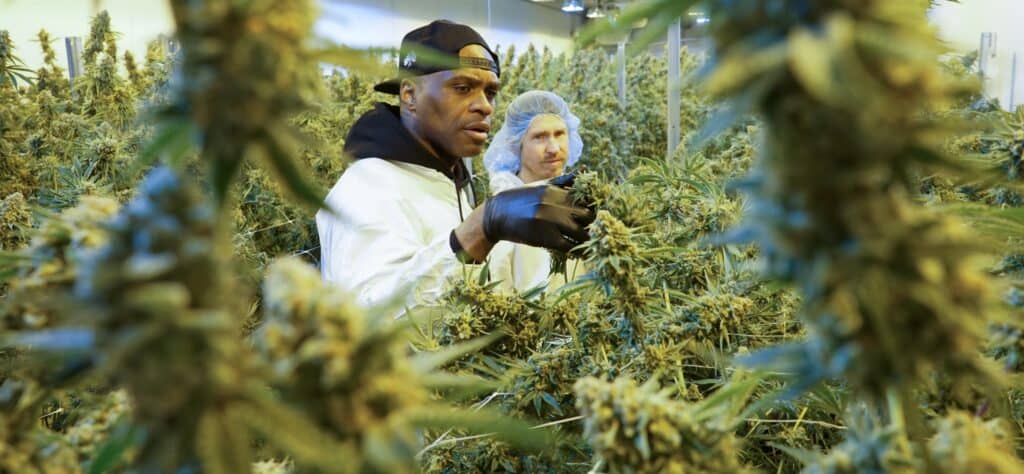
When I ask about his biggest obstacle in the transition between the traditional and legal markets, he doesn’t hesitate. “The biggest obstacle was learning the licensing process, and all the legal hoops that I had to jump through to have a legal cannabis business. They made it very difficult. Cannabis regulations are stricter than food regulations. The red tape is completely grueling.” When he was operating an illegal grow, he never had to make trips to City Hall for permits or worry about ADA compliance. “When I bought the grow, it was an illegal spot, so I didn’t have a permit to set up an HVAC. I didn’t have to go get an electrical engineer. If I needed an electrician, I just called Juan from down the street.”
“These brands have no idea how successful they would be. All you need to do is get some of those guys out of jail, who were incarcerated for doing this same thing, bring them into your company–giving them an opportunity to rehabilitate themselves–and ask them questions…”
While he was ultimately able to get through it, Ball sees such regulations as prohibitive to many who might otherwise consider making the transition. “The black market isn’t going anywhere. What people don’t realize is that there are guys who have been in the black market their entire lives. I am forty-two years old, and I have friends who have been in the business since they were sixteen, just like me. It takes care of their entire families, their entire city, where they’re from. The only way you could get rid of the black market is to allow the big time black market guys to come into the dispensary and buy two hundred pounds any time they want–which the dispensary will never, ever do.”
To Ball, marginalizing traditional cannabis sellers is a loss for the industry. “These brands have no idea how successful they would be. All you need to do is get some of those guys out of jail, who were incarcerated for doing this same thing, bring them into your company–giving them an opportunity to rehabilitate themselves–and ask them questions…Think how much more mature the industry would be if they just did that. But they don’t trust those guys.”
In many ways, Ball Family Farms acts as a bridge between the two worlds. Like his traditional counterparts, the business is able to support the whole family. But his legal status brings more opportunities for building generational wealth. “I’m proud that I’m changing the trajectory of my family. My brother is the CFO, my little cousin is my facilities manager, my sister works in the operations department. My mom, my uncles, we take care of their rent,” he says. “To be able to do all that with something that I was sitting in jail for ten years ago, is probably the thing I’m most proud of.”
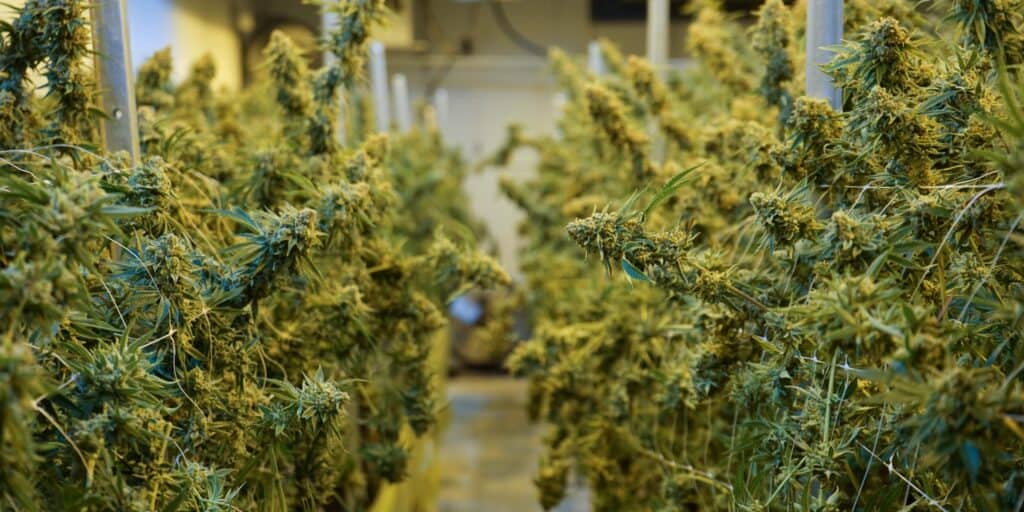
Ball may have come a long way in the world of cannabis, but he still adheres to the guiding principle of his neighborhood economy: sell the highest quality for the lowest price. As a result, Ball Family Farms products have a reputation as affordable top shelf cannabis.
Ball continues to expand his product line, support his community, and collaborate with the likes of Viola’s Al Harrington for social justice reform. Just hours before our interview, Berner, the rapper and cannabis impresario, started following their brand, an experience Ball says is “surreal.”
Creative control is the key to the business model; Ball approves every part of the supply chain, from seed to packaging. It’s his brand’s quality assurance program. The process begins with months of meticulous pheno hunting. Then, as the plants grow, his employees are instructed to give individual attention to each one, anticipating their needs by the look and feel of the leaves. “All the tender love and care you give comes back in the marijuana the plants express,“ he says.
“Everyone wants to take the human hands off the plant to minimize their bottom line. I understand that from a business perspective, but at the end of the day I don’t want to be Walmart. I want to be Louis Vuitton. I want to be Chanel.”
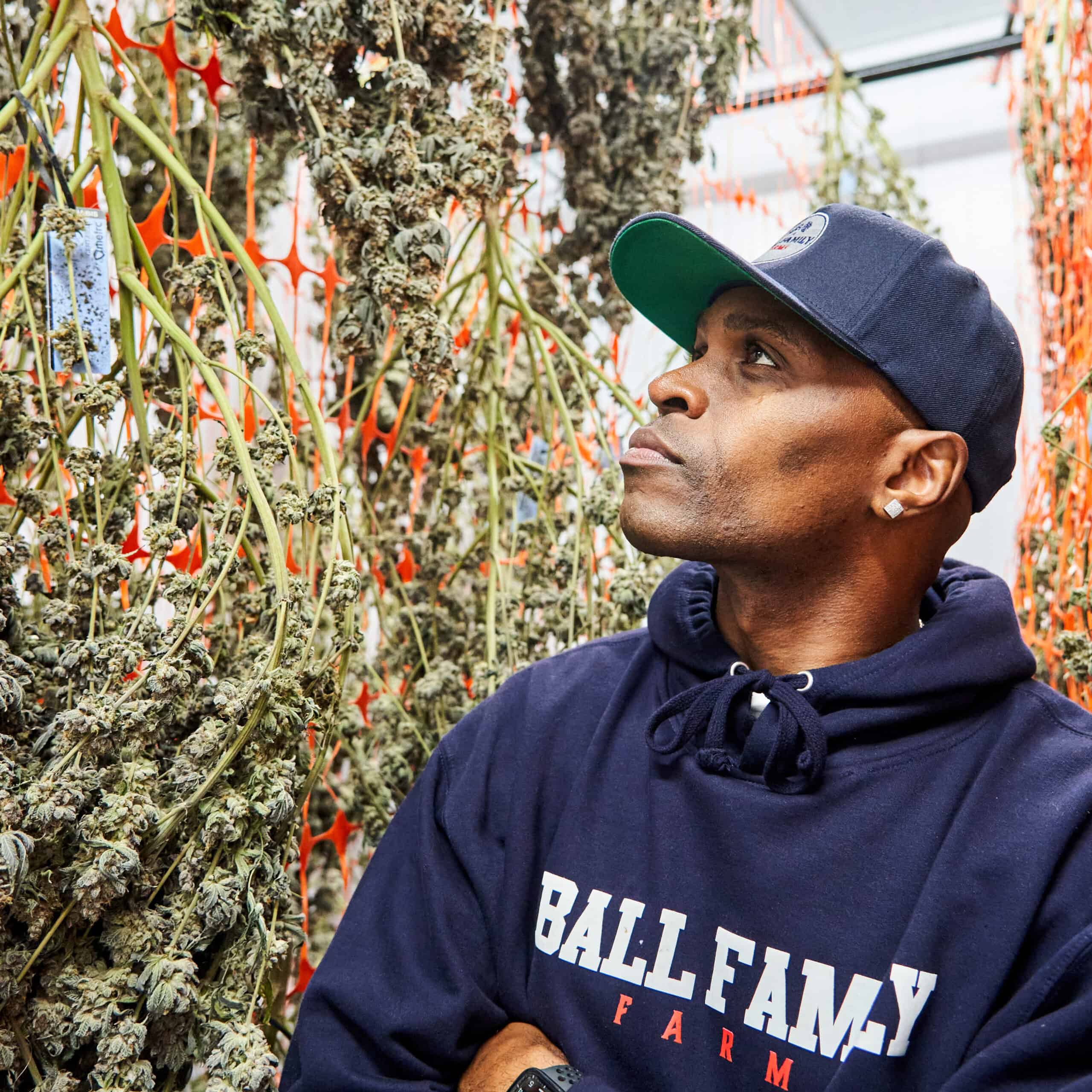
He admits that such attention to detail is not exactly efficient. “The process is time consuming. Everyone wants to take the human hands off the plant to minimize their bottom line. I understand that from a business perspective, but at the end of the day I don’t want to be Walmart,” says Ball. “I want to be Louis Vuitton. I want to be Chanel.” But unlike most luxury brands, Ball Family Farms’ premium cannabis is also affordable. “I’d rather take less to make sure the consumer is having the proper experience, ” Ball says.
While this business model may not be standard, Ball believes he’s contributing to a more equitable future in the industry. He hopes that social equity programs will take note of their failings and begin to seek out companies like Ball Family Farms to design better strategies for bringing people in. “They need to make it so guys like me can incubate other social equity applicants.” In his view, the more diversity there is in the marketplace, the bigger the collective benefit. “There is enough money in this industry to go around. There is enough money for everyone to live comfortably.”


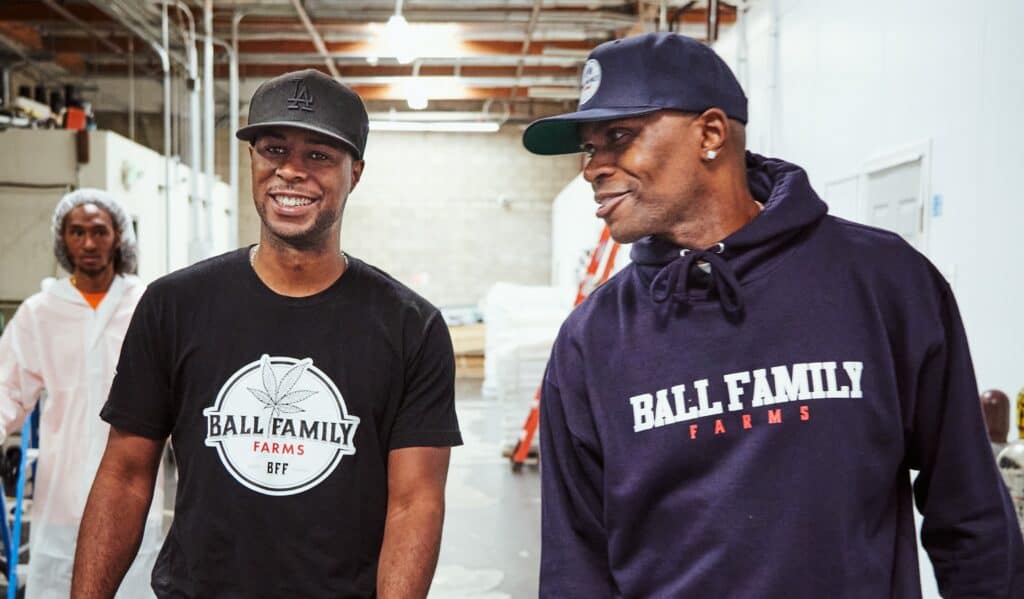

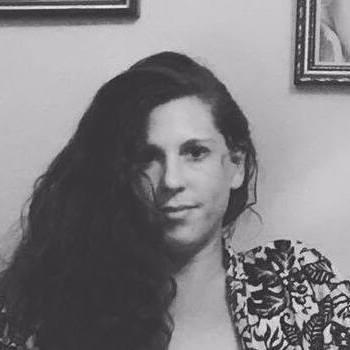

2 thoughts on “Talking with Chris Ball of Ball Family Farms about cannabis as community and why California’s illicit market will never die”
Pingback: 64 and Hope is ushering in a new and more progressive era for L.A.’s retail market - MJ Brand Insights
Pingback: BDSA’s top cannabis consumer insights for 2022 - MJ Brand Insights